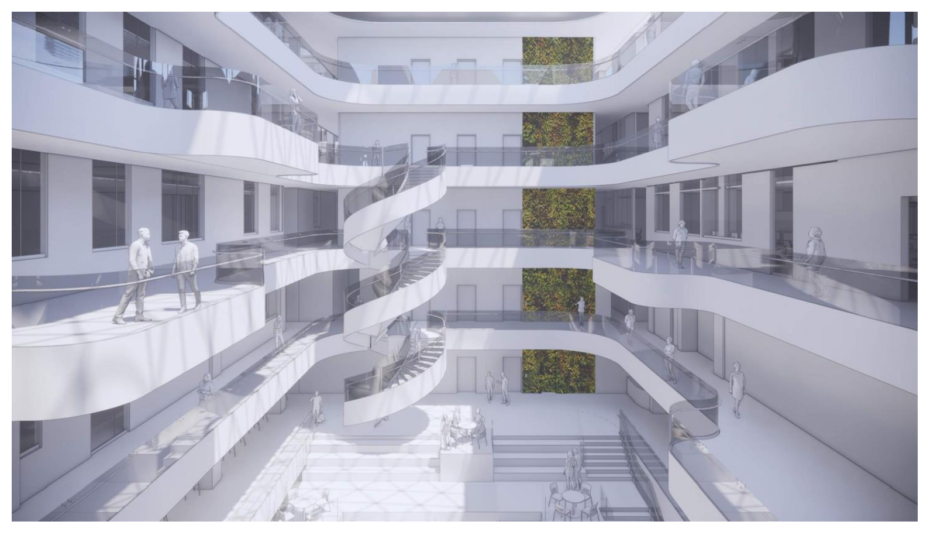
In this article, Principal Suzanne Fortier explains how McGill University wishes to create a multidisciplinary ecosystem—one that promotes sustainability research, teaching and social action—on the site of the former Royal Victoria Hospital:
Over the past few weeks, some groups and individuals have publicly expressed their opinions on the future of the former Royal Victoria Hospital site—including McGill University’s project to revitalize a portion of the site.
To give the public a more complete understanding of the many ways this important project will benefit Montreal and Quebec, I would like to share McGill’s vision for the New Vic.
The United Nations just concluded its series of virtual Climate Dialogues. The COVID-19 pandemic gave us a glimpse of the magnitude of the upheaval caused by this global challenge—and the fight against climate change is no different.
The world faces complex sustainability issues that affect us all, and no one country or institution is going to find the necessary solutions single-handedly.
Our universities, with their unique ability to connect experts, and to drive discovery and innovation that benefits the collective good, are well-positioned to create and put into action, the kinds of sustainable solutions that, in the words of the UN Brundtland Commission, will meet “the needs of the present without compromising the ability of future generations to meet their own needs.”
To this end, McGill University wishes to build on its leading-edge expertise by creating a multidisciplinary ecosystem—one that promotes sustainability research, teaching and social action—on the site of the former Royal Victoria Hospital.
McGill is home to almost 200 professors and 10,000 students who are engaged with not only the science of sustainability but its economic, social, ethical and other impacts. They collaborate with colleagues from several Quebec academic institutions, both here in Montreal and across the province.
Of course, even the most brilliant ideas can’t change the world if they’re not put into action across society. This is where McGill’s Max Bell School of Public Policy—a centre for policy expertise that combines interdisciplinary research, active engagement, and effective communication—comes into play.
The New Vic is a visionary and transformative project that aims to bring all these change agents together into an impactful, cross-disciplinary research and teaching hub.
With its plans to reimagine a portion of the former Royal Victoria Hospital site adjacent to our downtown campus, McGill is poised to unite all its sustainability and public policy expertise.
Our vision is to create a true innovation hub where researchers and students from different disciplines will work together to tackle problems related to sustainable development.
Already recognized as one of the world’s leading centres for research on biodiversity and sustainable development, Montreal will be able to attract even more talent, partners and leading companies from around the world, particularly from the clean technology sector.
We are therefore well-positioned to create a unique ecosystem from which to create partnerships that will lead to innovation and solutions that will determine the future of the planet. Let’s not miss this unique opportunity to play a leading role in the global search for answers.
Suzanne Fortier, Principal and Vice-Chancellor

The New Vic Project is indeed an exciting project and an essential element of the University’s master plan – helping reinforce and showcase McGill’s leadership in sustainability across its operations, research and teaching activities. Looking forward to its realization!